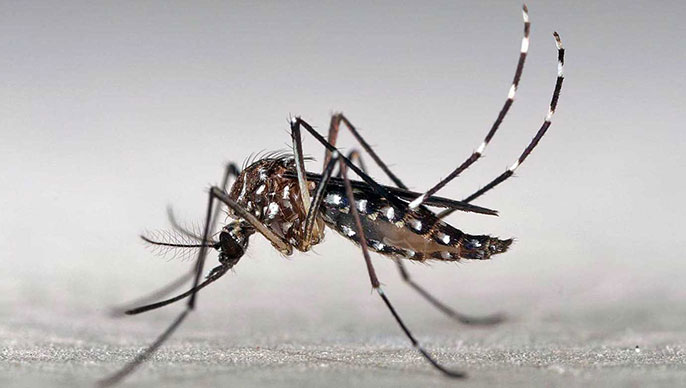
.
.
Zika Virus
The Zika virus was discovered in the Zika forest of Uganda in 1947. Zika virus is a member of the flavivirus family. Dengue, yellow fever, and West Nile fever are also flaviviruses. Zika virus is primarily transmitted to humans through the bite of infected Aedes aegypti mosquitoes. Zika virus, like HIV can cause Viremia. VIREMIA is is a process by which a virus enter into the bloodstream and can be transmitted from the infected pregnant woman to her developing fetus during pregnancy. This can result in microcephaly and other serious birth defects due to Intracranial calcifications ofthe brain.
The Aedes aegypti zika virus can also spread through intercourse or blood transfusion. Most people who become infected with Zika virus do not become sick. For the 20 percent of people who do develop symptoms, the illness is generally mild and includes fever, rash, joint pain and conjunctivitis (red eyes). Illness lasts several days to a week. Research have still to determine precisely how long the virus remains dormant in the body.
Why study the Zika Virus
Pan American Health Organization issued an alert regarding the first confirmed Zika virus infection in Brazil during May 2015. Since that time, Brazil’s deadly Aedes aegypti virus have migrated to other countries and territories in Central and South America, as well as the Caribbean (including Puerto Rico and the U.S. Virgin Islands) have experienced ongoing Zika virus transmission.
More than 23,000 people in the mainland U.S. and Puerto Rico have contracted the Zika virus, according to the Centers for Disease Control and Prevention. That includes more than 2,000 pregnant women, which is especially troubling because the zika virus can cause microcephaly and other serious birth defects.
The CDC estimates that 20 babies in the mainland U.S. and 1 baby in Puerto Rica have been born with birth defects related to Zika .Centers for Disease Control and Prevention.
The National Institute of Allergy and Infectious Diseases Basic Research

NIAID research helps us learn more about the Zika virus to help those affected. The National Library of Medicine offers a Zika Virus Health Information Resource Guide(link is external) for more information on where the current risks are and other research initiatives world wide.
Cases of Zika Virus Disease in the United States